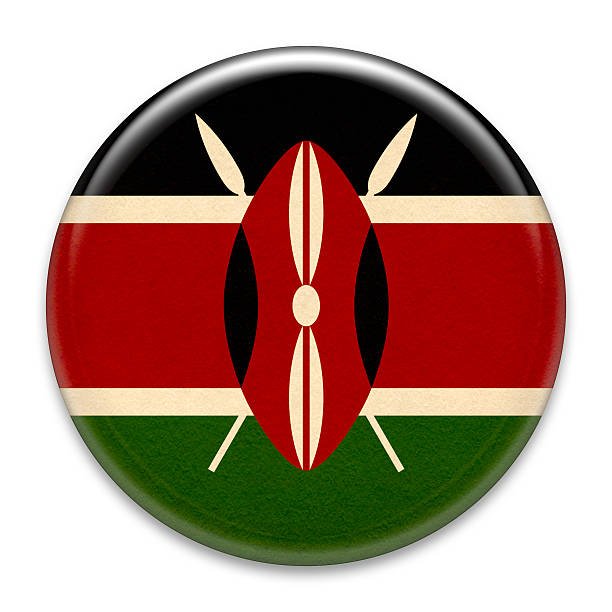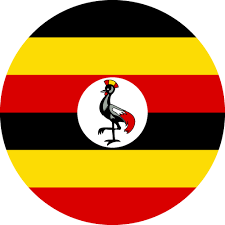Employer of record in Ethiopia
Employer of record in Ethiopia
Employer of record in Ethiopia
Employer of record in Ethiopia

Ethiopia is a landlocked country in the Horn of Africa, known for its rich history, diverse cultures, and stunning landscapes. It is the oldest independent nation in Africa and home to ancient civilizations, including the Kingdom of Aksum. Ethiopia is famous for its archaeological sites, such as the rock-hewn churches of Lalibela, and as the birthplace of coffee. With over 80 ethnic groups and languages, it boasts a unique cultural heritage. The country has a rapidly growing economy, with agriculture, coffee production, and manufacturing as key industries. Addis Ababa, its capital, serves as a major diplomatic hub, hosting the African Union headquarters.
Employee Benefits
Paid Time Off
Annual Leave: Employees who have completed one year of service are eligible for 16 days of paid leave annually, with an additional day granted for each successive year of employment. For instance, an employee with five years of service is entitled to 18 days of paid leave.
Sick Leave: Employees can take up to six months of sick leave. The first month is fully paid, followed by 50% pay for the subsequent two months. Any additional sick leave beyond this period is unpaid.
Maternity Leave: Female employees are entitled to 120 days of paid maternity leave, with 30 days allocated before the expected delivery date and the remainder post-childbirth.
Paternity Leave: Fathers are entitled to three days of paid paternity leave.
Family Leave: There are no legal provisions for additional parental leave beyond the maternity leave period.
Public Holidays: Ethiopia observes 13 paid public holidays each year.
Other Paid Leave: Not applicable.
Statutory Employee Benefits
Unemployment Benefits: Ethiopian labor laws do not provide unemployment benefits.
Workers’ Compensation: Employees are covered through social security contributions.
Social Security Contributions: Ethiopian citizens are required to contribute to social security, while foreign citizens of Ethiopian origin have the option to participate. Foreign nationals without Ethiopian origin are ineligible to contribute.
Employers must contribute 11% of an employee’s basic salary to social security, while employees contribute 7%.
Retirement Benefits: Retirement pensions are funded through social security contributions.
Healthcare: Ethiopia offers a community-based health insurance (CBHI) program. Private medical insurance is optional and may be offered at the employer’s discretion.
Life Insurance: Life insurance is a voluntary private option available for employees.
Private Employee Benefits
Workers’ Compensation: Private work accident insurance options are available in Ethiopia.
Retirement Plans: Employees may choose to participate in private pension funds.
Healthcare: Private healthcare services are available and offer a higher standard of care.
Life Insurance: Private life insurance policies are accessible in Ethiopia.
Personal Income Tax
Tax Year: The tax year runs from July 8 to July 7.
Tax Brackets: The following tax rates apply to employment income:
| Monthly Income (ETB) | Tax Rate (%) | Deductible Amount (ETB) |
|---|---|---|
| 0 – 600 | Exempt | 0 |
| 601 – 1,650 | 10 | 60 |
| 1,651 – 3,200 | 15 | 142.50 |
| 3,201 – 5,250 | 20 | 302.50 |
| 5,251 – 7,800 | 25 | 565.00 |
| 7,801 – 10,900 | 30 | 955.00 |
| Over 10,900 | 35 | 1,500.00 |
A tax relief deduction is applied based on an employee’s salary band.
Taxation System: Ethiopia follows a progressive tax structure for Pay-As-You-Earn (PAYE).
Double Taxation Agreements: Ethiopia has agreements to prevent double taxation with multiple countries.
Residency Criteria: An individual is considered a resident of Ethiopia if they meet any of the following conditions:
- They have a permanent residence in Ethiopia.
- They are an Ethiopian citizen working abroad in a diplomatic or consular role.
- They have spent more than 183 days in Ethiopia within a 12-month period.
Payroll System: Salaries are typically disbursed on the last working day of the month.
Tax Rebates & Credits: No employment income tax credits are available, but tax relief is applied based on salary levels.
Payroll Elements
Income Sources: Compensation includes salary, overtime, bonuses, taxable benefits, allowances, and other incentives.
Bonuses: While not legally required, bonuses are common in Ethiopia.
Allowances: There is no statutory requirement for contractual allowances.
Benefits in Kind: These may include company-provided cars, housing assistance, and educational support.
Investment Income Tax
- Capital gains tax is 15% on business-related buildings and 30% on stocks and bonds.
- Undistributed corporate earnings not reinvested are subject to a 10% tax.
- Non-resident corporations repatriating profits are taxed at 10%.
- Rental income from properties is taxed progressively from 10% to 35%.
Retirement Contributions: Covered through social security.
Health Insurance: Community-based health insurance is available. Private insurance is an option but not mandatory.
Risk Insurance: Not applicable.
Taxable Income: Residents are taxed on global income, while non-residents are only taxed on Ethiopian-sourced income.
Tax-Exempt Income: Certain payments, such as employer-covered medical expenses and business travel reimbursements, are tax-exempt.
Payroll Taxes & Employer Contributions
Payroll Taxation: Employers must deduct payroll taxes and remit them to the Ministry of Revenue by the 30th of the following month.
Social Security Contributions: Employers must submit pension contributions within 30 days of deduction. Failure to pay for three consecutive months allows the Social Security Agency to recover dues directly from the employer’s bank account.
Workers’ Compensation: Employees suffering workplace injuries are entitled to compensation categorized into four types:
Permanent Total Incapacity – If the worker loses 10% or more of their ability to work, they receive 47% of their monthly salary as a pension.
Permanent Partial Incapacity – Compensation is based on the percentage of disability and is paid as a lump sum.
Temporary Incapacity –
- 100% salary for the first three months
- 75% for the next three months
- At least 50% for up to a year or until recovery
Fatal Injury – Dependents receive survivor pensions:
- The spouse receives 50% of what the deceased worker was entitled to.
- Each orphan receives 20-30% of the pension.
- Each dependent parent receives 15-20% of the pension.
- The total survivor benefits cannot exceed 100% of the deceased’s pension.
Statutory Benefits: Employees contribute to Ethiopia’s social security and work injury benefits scheme. Community-based health programs are also available.
Employee Benefits Overview: Employees in Ethiopia are entitled to a minimum of 16 days of paid leave annually, along with public holidays. Sick leave extends to six months, with three months of partial pay. Maternity leave covers 120 days, while paternity leave allows for three days of paid absence.
































